How to Start a Horse Boarding Business
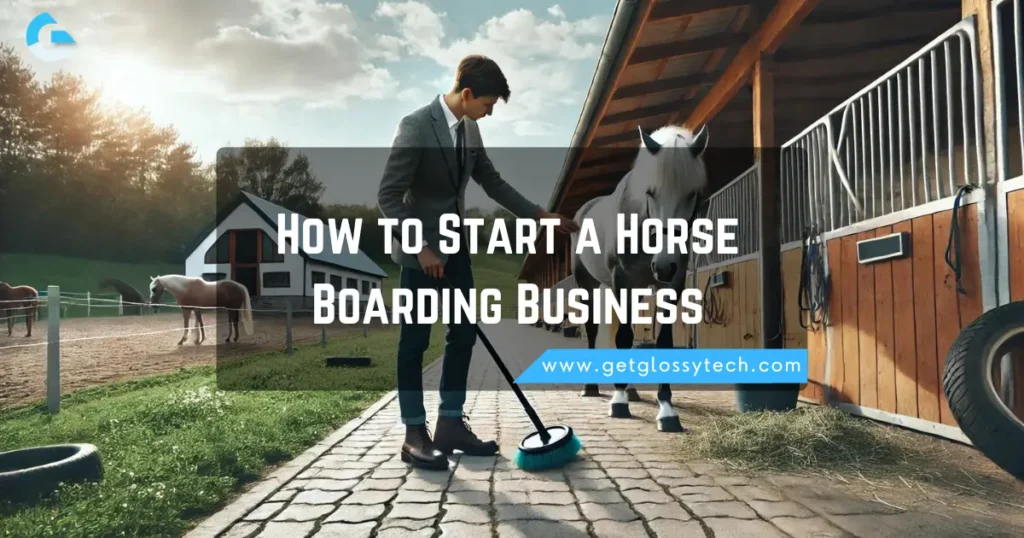
Starting a horse boarding business can be exciting! Imagine turning extra space on your private property into a fun place where horses live and play. It’s not just about making extra money; it’s about helping people and their horses find a safe and happy home.
If you love horses and want to learn how to take great care of them, this could be the perfect adventure for you. Let’s find out how to make your horse haven the best it can be!
Different Kinds of Boarding Establishments and Specialized Boarding Offerings
Starting a horse boarding business can be both profitable and fulfilling, especially if you love caring for horses and want to provide value-added options to a diverse clientele.
Whether you’re in affluent urban areas or the rural outskirts near city limits, there are various opportunities to establish a thriving business. Small operations can grow into full-scale facilities, offering everything from
1: Short-Term Boarding
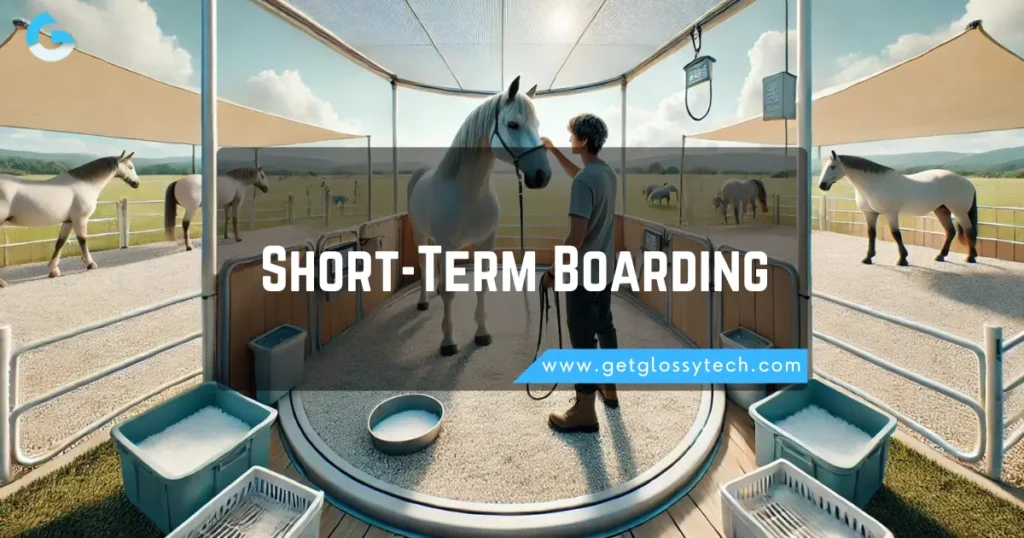
If you love horses and have space, consider starting a short-term horse boarding business—a rewarding way to supplement your income.
Here’s how you can set up:
- Operate in an area popular with horse travelers, offering boarding for overnight or short periods like days or weeks.
- Charge by the day, week, or month, providing flexible accommodation options that cater to the varying needs of equestrians.
Ensure your facilities cater exclusively to guests, with robust measures in place to prevent horses from being exposed to disease. Separate the boarding facility from regular operations to ensure each horse has its own space, minimizing risk and enhancing animal welfare.
This approach helps ensure that all boarded horses receive the highest standard of care and boosts your business’s reputation within the horse community.
2: Full Board
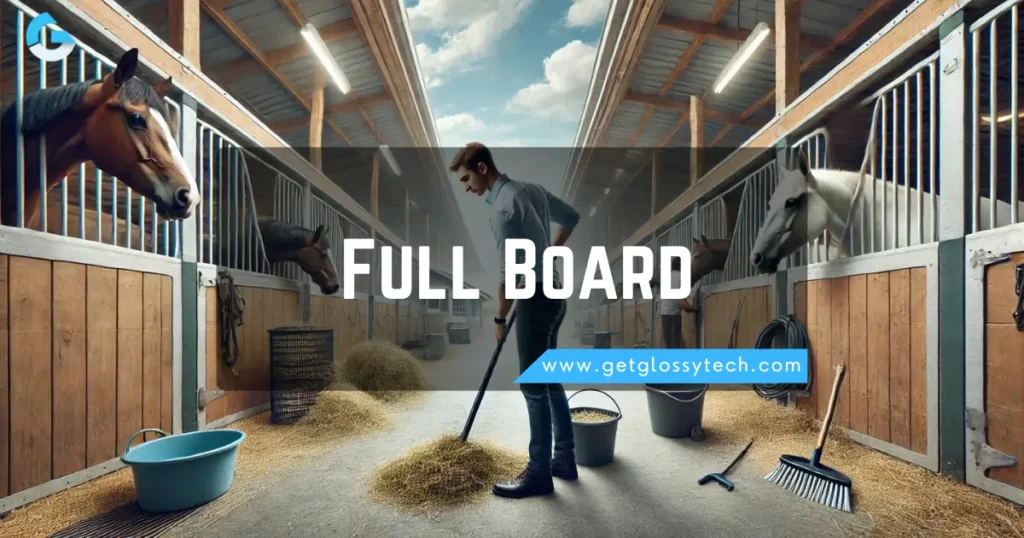
Starting a horse boarding business means you’re caring for horses by providing a full board service. This includes renting a stall and handling daily chores like:
- Stall cleaning
- Grooming
- Turnout
- Supplying hay, grain, water, and bedding
Horse owners often look for full-service facilities that offer professional training and riding lessons as well, especially if they own competition horses. A monthly fee covers all these services, making it a valuable option for those who deeply love and appreciate equestrian pursuits.
A solid boarding agreement ensures everyone understands the cost, care, and services provided, aligning expectations between the stable owner and the horse owner.
3: Broodmare and Foal Boarding

Starting a broodmare and foal boarding service requires a facility designed to meet the unique needs of broodmares and their foals. Larger stalls and special needs areas must be accommodated to ensure mares and their young stock are comfortable. These spaces should be separated to allow for adjusting to various stages of pregnancy and weaning.
Full board options should include plenty of turnout space and facilities that are practical and safe for both weaned and unweaned weanlings. Caretakers with deep knowledge of horse breeding are essential to monitor the health of the stallions, mares, and foals.
This setup not only anticipates the seasonal foaling demand but also ensures that each animal’s care is tailored from birth through the months leading up to and following weaning.
4: Partial Board
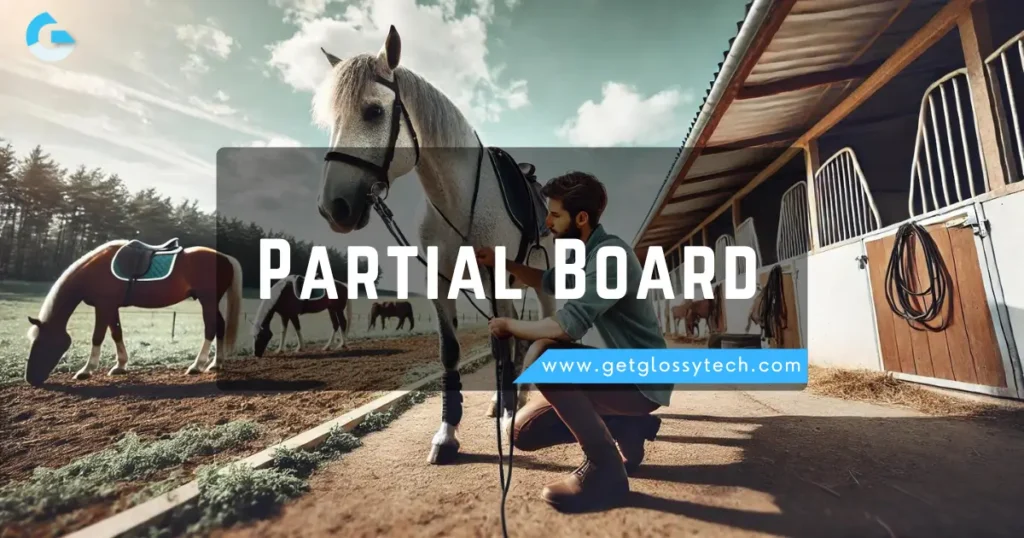
Offer partial board in your horse boarding business to attract owners who want to be hands-on. This option includes stall space, pasture access, feed, hay, and bedding, while the owners manage basic stable chores and self-care for their horses, reducing your labor costs.
5: Stallion Board
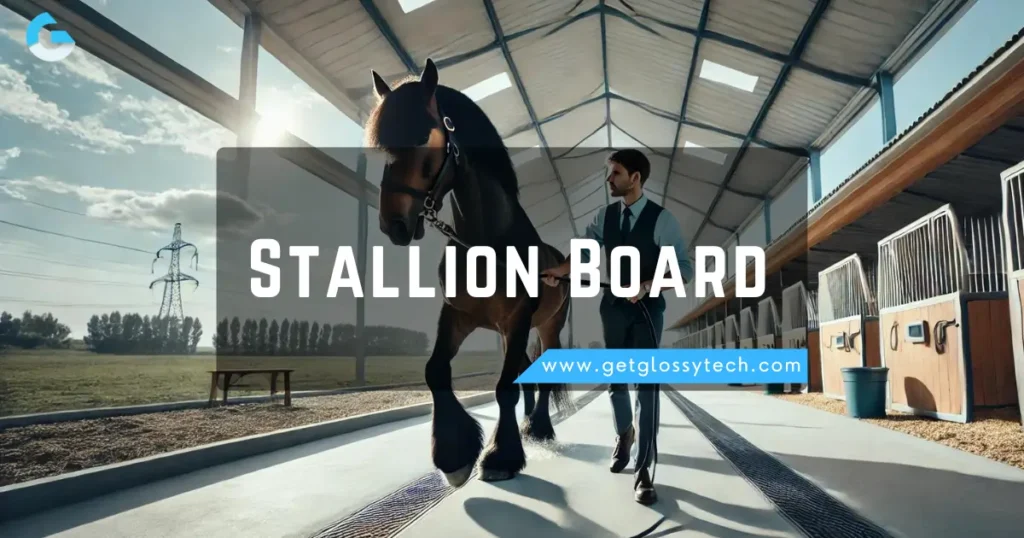
Starting a horse boarding business requires careful consideration, particularly when dealing with stallions. To accommodate these spirited animals, you must:
- Secure the facilities to prevent escapes and reduce risks of injuring other horses or staff.
- Implement aggressive management strategies that ensure safety and order in the boarding area.
- Provide experienced personnel adept at handling stallions and their unique behaviors.
Additionally, incorporating breeding services like artificial insemination can significantly enhance your business’s appeal and profitability. It’s crucial to:
- Offer specialized care and services that cater specifically to stallions, separate from mares to manage interactions.
- Ensure day-to-day operations support a profitable and efficient venture with a safe and secure environment for all boarders.
This setup not only promotes a safe space for horses but also ensures your facility provides the essential access and services needed for top-level horse care and management.
6: Pasture Board
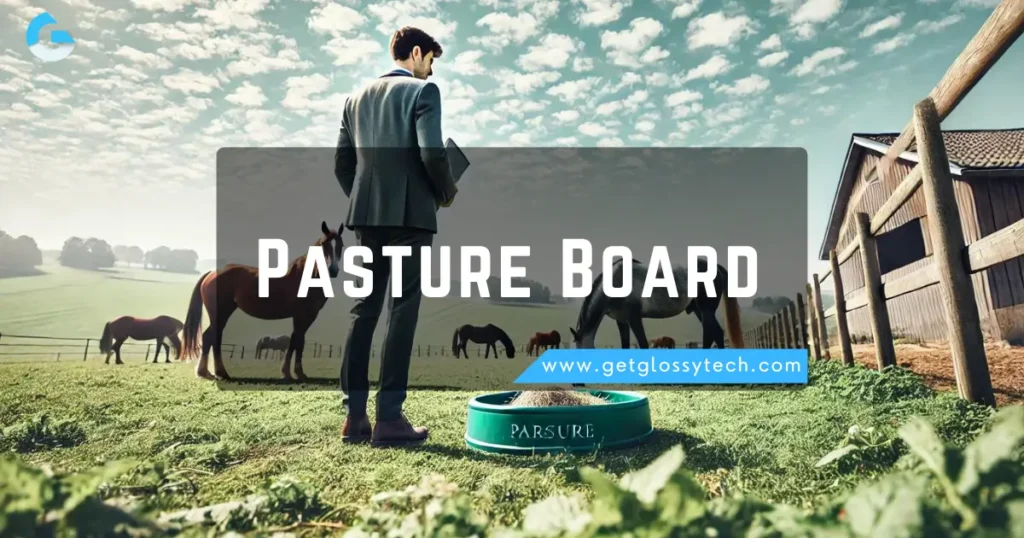
In starting a horse boarding business, prioritize pasture board options, emphasizing space and natural shelter. Ensure horses have ample pasture and are protected from the elements.
Provide essential hay, grain, and supplements for health. Secure facilities with a clear boarding agreement to outline arrangements. Stay informed about the market to enhance your operation and offer specialty services as needed.
7: Retirement Board

Retired horses often live a long time, sometimes up to 20 or 30 years, and owners may find it difficult to keep them. These older horses may no longer be able to ride, be infirm, or have other special care needs.
In many cases, they may even be sent to rescues. However, offering a retirement boarding service can solve these issues. The right facility with spacious pastures in a quiet country setting can provide a comfortable and lucrative option for these horses.
A retirement facility for horses requires fewer high-end features but should have:
- Comfortable stalls
- Soft bedding
- Proper vet, farrier, and dental care
Providing groomed riding trails and a relaxed field with shelters will make the space appealing. Owners elect this type of board because it’s less cost-prohibitive and focuses on the horse’s health and comfort. This type of board is the best option for those who love older horses.
8: Rehabilitation Boarding
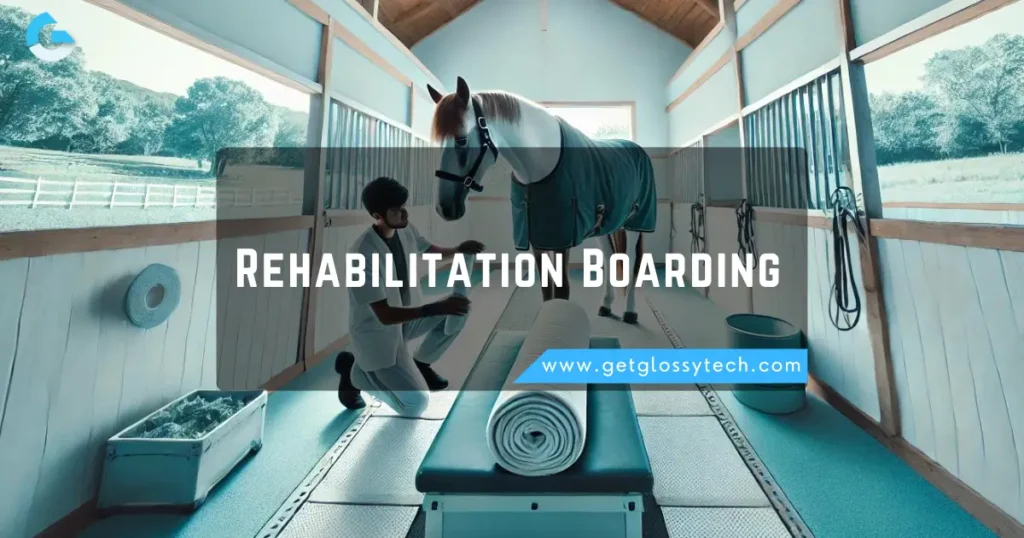
Rehabilitation boarding offers a unique opportunity for horse owners to provide specialized care for horses in recovery from injury or chronic illness. Many horse owners need assistance during a horse’s convalescence or lay-up period.
This kind of boarding requires hands-on tasks like:
- Wrapping legs and applying dressings
- Hand-walking horses during recovery
- Administering medications and providing TLC
- Hosing, icing, and monitoring the horse’s progress
In addition to basic care, these facilities often work with vets, farriers, and animal hospitals to ensure the horse’s injured or ill condition improves with the right treatments. Facilities near competition grounds, racetracks, and veterinary clinics are in high demand, especially for racehorses.
Those offering rehabilitation boarding must be prepared to handle multiple horses while performing regular chores and providing hands-on care. Experience in liaising with professionals and handling tasks like icing or wrapping legs will make a facility stand out. Proper staffing is essential, and hiring knowledgeable employees who can manage these responsibilities ensures the facility runs smoothly.
Steps to Launch a Horse Boarding Facility
Ready to dive in? Here’s the path to starting your own horse boarding business:
1: Analyze Your Local Industry Market

To start a boarding facility, you need to research the local market in your area. Look at the competition and find any gaps in services like luxury services or high-end amenities. Focus on what your client base needs, whether it’s for pleasure riders, retired horses, or those needing regular training.
- Check available facilities and their facility strengths and weaknesses.
- Talk to vets, farriers, and tack shop owners for insights.
- Consider upscale boarding options with state-of-the-art stables and spacious turnout.
- Use word of mouth to reach horse owners looking for unique services.
Make sure your boarding business fits the market suits and meets the audience demand for both youth and adult riders, whether for dressage or recreational purposes.
2: Develop a Business Plan

When starting a boarding business, having a solid business plan is key. Start with an executive summary that includes an overview of your boarding facility and its company goals. Highlight key details like funding needs, a roadmap, and any value-added services. Include a report on market opportunities and industry trends.
To stand out, focus on your company overview by identifying how your business will solve industry problems. Use your market analysis to define your target market and competitive advantage:
- List your target clientele and demographics
- Research industry trends and opportunities
- Detail the competitive advantage of your boarding facility
Be sure to explain your organization and management structure, whether it’s a sole proprietorship or limited liability company (LLC), to clarify roles, profits, and liability.
3: Horse Care Expertise

Starting a horse boarding business requires solid horse experience and knowledge of horse care. As a barn owner, managing daily tasks like feeding, watering, brushing, and turning out the horses is essential. Offering a full-board option appeals to equestrians looking for comprehensive care.
To stand out from competitors, you’ll need strong expertise in barn management and ensure your boarding facility offers higher-quality service. Even if you’re an inexperienced financial investor, hiring an experienced stable manager can help run the daily operations smoothly, attracting your target audience and making the venture more profitable.
Providing excellent care and maintaining the horses’ housing will help build a reputable business. Paying a competitive salary ensures staff loyalty while offering more value will make your service stand out. Even with business owners’ challenges, offering quality will help you succeed in this competitive market.
4: Establishment

Starting a horse boarding business requires thoughtful planning and attention to detail. Here’s how you can establish a welcoming and functional facility:
- Find a property with enough space to accommodate various paddocks and a field where horses can roam free. This helps in managing pasture effectively.
- Ensure the boarding barn is equipped with indoor and outdoor arenas to cater to all weather conditions and equestrian world events.
- Implement a rotation-grazing strategy to maintain the health of the field and prevent field dying, involving county extension agent advice for optimal pasture management.
When setting up the arenas:
- Choose high-quality footing to prevent tendon injuries and provide a safe environment for horse owners and their animals.
- Offer footing solutions that cater to both training needs and Dressage competitions, like those held in San Tan Valley, Arizona.
- Maintain an affordable price point while ensuring reliable footing, building trust with clients, and avoiding the temptation to overspend on unnecessary enhancements.
5: Address Legal Requirements
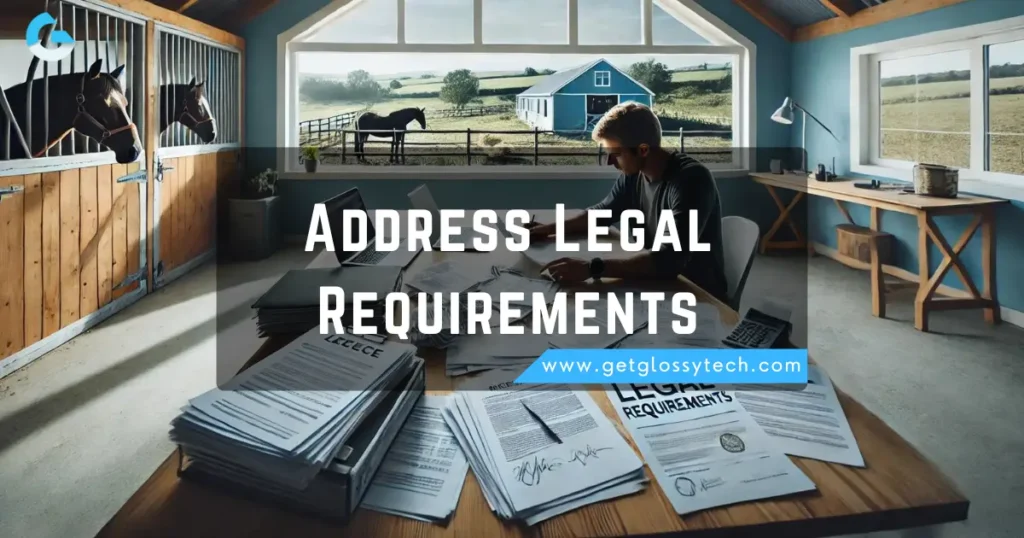
Managing legal aspects is crucial When setting up a horse boarding business. First, ensure your facility complies with local equine activity statutes. It’s vital to have liability releases signed by:
- Owners
- Riders
- Families
- Visitors
To safeguard against lawsuits due to accidents. These documents should clearly state the risks involved and the extent of liability the stable owner is exempt from. In the event of an accident, these releases will be your first defense in court.
Crafting Your Boarding Contract
A thorough boarding contract is essential. This contract should detail everything from boarding fees to extra services offered. Include client contact information, horse identification details like tattoos or identifying marks, and any preexisting conditions of the horses.
You'll also want to outline what happens in case a client can't make decisions due to absence—this means having emergency contacts and a protocol for various scenarios. Consult with an equine attorney to ensure all your bases are covered.
Setting Up Your Website
A website for your business isn't just about showcasing your stable; it's a legal tool. Make sure your website includes a privacy policy, terms and conditions, and any necessary disclaimers to comply with FTC laws. Also, display your intellectual property rights, like copyright information, in the footer of each page.
Securing Adequate Insurance
Finally, don't overlook the importance of insurance. You'll need property insurance, commercial liability insurance, and specifically, care, custody, and control insurance, which is crucial for a boarding facility handling others' horses. Check that your policies cover both per-claim limits and aggregate limits to adequately protect the value of the horses under your care.
6: Budgeting and Financial Planning

When starting a horse boarding business, careful budgeting and financial planning are crucial. You'll need to consider costs for purchasing or leasing land and whether to build or buy a stable.
Planning for Essential expenses like:
- Arena Construction
- Stalls
- Fencing
- Gates
Don’t forget about maintenance costs for arena upkeep, landscaping, and manure storage and removal. It's also important to think about the features your facility will need to accommodate your client's horses comfortably and securely.
This includes installing lockers for boarders to store personal tack safely and ensuring there are adequate restrooms. Having liability insurance is a must to protect your business.
Budget wisely to include unexpected expenses that often run up and hire skilled employees to care for the horses. Proper planning from the start helps your boarding business succeed in the long run.
FAQs: How to Start a Horse Boarding Business
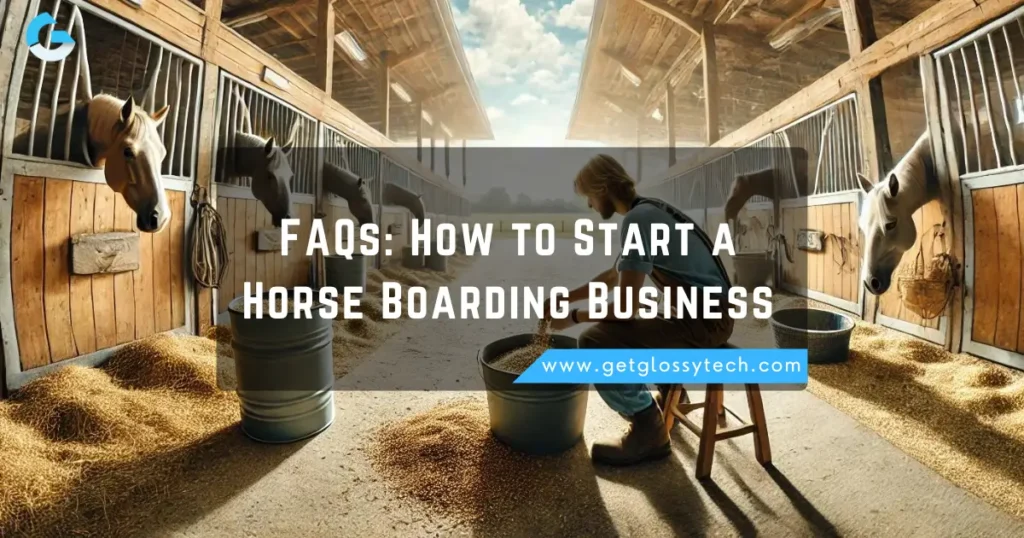
1: Is Boarding Horses Profitable?
Yes, boarding horses can be profitable. Success depends on effective management, setting competitive rates, and providing excellent care and facilities that attract and retain clients. Maintaining low overhead costs and offering additional services like training or grooming can also increase profitability.
2: What Are the Must-Haves in a Horse Boarding Facility?
A horse boarding facility must have secure stalls, adequate food and water supplies, proper fencing, and safe riding arenas. It should also offer tack rooms, sufficient bedding, manure management systems, and regular maintenance.
Essential amenities like restrooms and parking spaces enhance client convenience. Ensuring the facility has liability insurance and experienced staff for daily operations is also crucial for both safety and business success.
3: How do you turn horses into a business?
Starting a business with horses can involve various activities such as offering riding lessons, horse boarding, breeding, or providing therapeutic riding programs. To succeed, it's important to have a clear business plan, understand the costs involved, and know the needs of your target market.
Additionally, maintaining high standards of horse care and customer service can help develop a reputable and profitable business.
Conclusion: How to Start a Horse Boarding Business

In conclusion, starting a horse boarding business requires thorough planning and a deep understanding of both equine care and business management. Key steps include securing suitable land, building or updating facilities, and ensuring all legal and insurance requirements are met.
It's essential to budget carefully, considering both initial investments and ongoing expenses to maintain high-quality services. By focusing on the needs of the horses and their owners, and by providing excellent care and customer service, you can establish a successful and rewarding horse boarding business.

